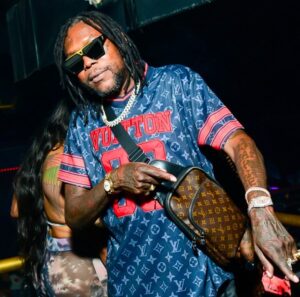
It’s politics time again
Lots of media attention has been given to the by-election in Portland Eastern. Over the past six weeks, advertisements have been broadcast on television and radio, meetings have been held and the big-names from the two parties — Jamaica Labour Party and People’s National Party — turned out in their numbers to support their respective candidate. By the time this is published, one side will be celebrating, while the other will not. That’s how politics goes; someone will win and someone will lose.
Talking with a millennial a few days ago I asked if he had an opinion on the by-election. “No, Miss, nutten nah go change. Di two party a di same. Dem only business wid di people when election call.”
That’s a sentiment which has been going around for some time now. For the last few years, when Jamaicans have gone to the polls — general or local — the turnout gets smaller and smaller. While the ‘die-hearteds’ come out in their T-shirts with their chosen candidate on their chests, ready to mark their ballot and dip their finger, there is still a larger number who seem to have no interest in the voting process. Oddly, it doesn’t mean that they are not interested in politics. They have a lot to say about what and who they don’t like. Traditional and social media have shown the back and forth of opinions and views over the past month. Letters to the editor, calls to talk shows, tweets, and memes are as plentiful as plastic bottles in a gully. Many talk, but few vote.
Question of the day: Why aren’t people actively taking part in the political process?
The great thinker, National Hero Marcus Mosiah Garvey had views on the matter from colonial times of the 1920s. Garvey said: “The tomfoolery about eschewing politics… must be done away with.” In those days, the “common man” was excluded from politics as we know it. That was left to the higher-ups of society of the time. Garvey warned: “Without the people there can be no Government. The Government must be, therefore, an expression of the will of the people.”
By the 1960s, when we took the reins from England, we took on to politics with more interest. Some would say the fever for politics ran too hot as the years of tribal divisions and wars would follow, turning our plans for self-governance into a complicated mix of hope and distrust of each other.
Another friend of mine, of more senior years, joined in the argument I was having with the vote-averse youth. She wondered if those rough times when blood was shed over party colours had turned off a whole generation. The anguish of brother turning against brother undoubtedly drove some away from the process. For them, politics was politricks and they wanted no part of it.
Some have also said that in this new era, in which our political parties share much of the same ideology, there is little to distinguish between the two. “All a dem a di same ‘P’.” Allegations of corruption and neglect have also drained away the interest in going out to vote.
For those who don’t think there is a reason to vote, let me share another quote from Garvey: “Always make your Government know about your presence. Never hide from the Government.”
I can hear the cynics saying, their absence makes their presence known. Others feel that staying away from the polls doesn’t send the same message as a resounding victory or a bruising defeat.
It will be interesting to see what comes out of the Portland Eastern election. Pollsters have revealed their numbers, but only the final count of the ballots will tell the answer.
Ungracious behaviour
The news of Calabar students chanting anti-gay slurs at Kingston College, the “Champs” winners, was not a good look for the school. The Calabar name took a battering again and the newly minted minister of education expressed his disapproval of the behaviour seen in the viral video. The chorus of angry voices grew loud. The Calabar School administration acted quickly, reprimanding the boys and offered an apology to the teachers and students of Kingston College.
We have a far way to go with our young people if they continue to struggle with what is appropriate behaviour. The other lesson for our millennials to learn is, just how quickly things can “go viral” via social media. Our youth need to know how not to be outsmarted by their smartphones. In days past, only those who were present would have known what went on during their school gathering. Hear me, youth man, there are no secrets anymore. Your actions will come to light. The Internet and social media chat-chat more than Liza mouth. Look and learn and tek lesson!
Barbara Gloudon is a journalist, playwright and commentator. Send comments to the Observer or gloudonb@gmail.com.
























